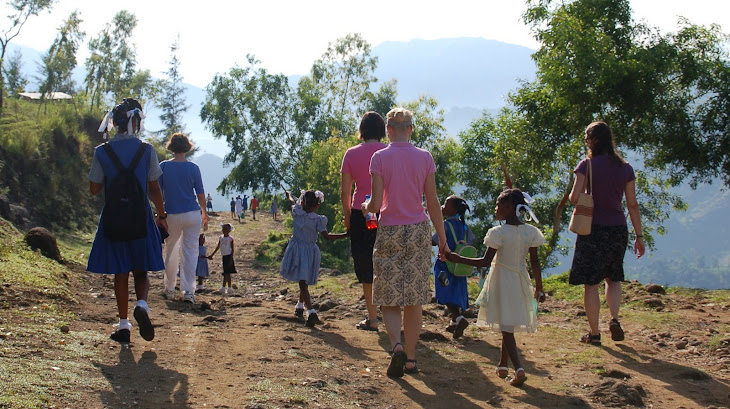“With or without religion, good people can behave well and bad people can do evil; but for good people to do evil—that takes religion.” -- Steven Weinberg, Nobel Laureate in physics
The plight of 10 American Southern Baptists detained in a Haitian prison for human trafficking has caught the world’s attention. Earlier this month, they were arrested while trying to sneak 33 Haitian children over the border to the Dominican Republic. The Baptists say they were simply trying to help and planned to return the next day for the children’s papers.
Charlot with a seminary classmate
The children, ranging from 2 months to 12 years, had their names taped to the front of their shirts. They had been taken from a children’s home, where they were waiting to be reunited with their parents. One little girl with tears in her eyes said her parents were still alive. Haitian officials claim they were attempting to find their families, and the Baptists acted with blatant disregard to international adoption law.
It’s hard to know whom to believe. On the one hand, I can understand the Baptists’ longing to rescue Haitian children. There were 380,000 orphans in Haiti before the earthquake, one of whom was a 4-year-old named Charlot. I met him at the hospital in Léogane, where he sat like a little Buddha on his hospital bed. His distended belly cried for protein and nutrients. The woman caring for him begged me to take him to the United States. I later discovered she was his aunt, but she loved him enough to let him go, hoping for a better life. I could not adopt Charlot because I was a seminary student. I later learned Haiti has very strict adoption laws that would have prevented me. It didn’t matter. Leaving that little boy, weak and starving, haunted my dreams for months to come. Why couldn’t I save him?
On the other hand, I can understand the Haitian government’s response: You may not violate international law to “save” children we are trying to reunite with their families. The Haitian prime minister says the Baptists knew what they were doing was wrong. He wants them to be tried in the U.S. because the Haitian courts have been crippled by the earthquake. Even so, the State Department has placed the onus of the Baptists’ fate back on the Haitian system.
The full consequences of the Baptists’ actions remain to be seen. Will their example deter human trafficking by other groups? Or will their behavior make much-needed adoptions of other Haitian children more stringent and complicated? Either way, the Baptists give us pause to reflect on why we attempt to save in the name of religion.








No comments:
Post a Comment